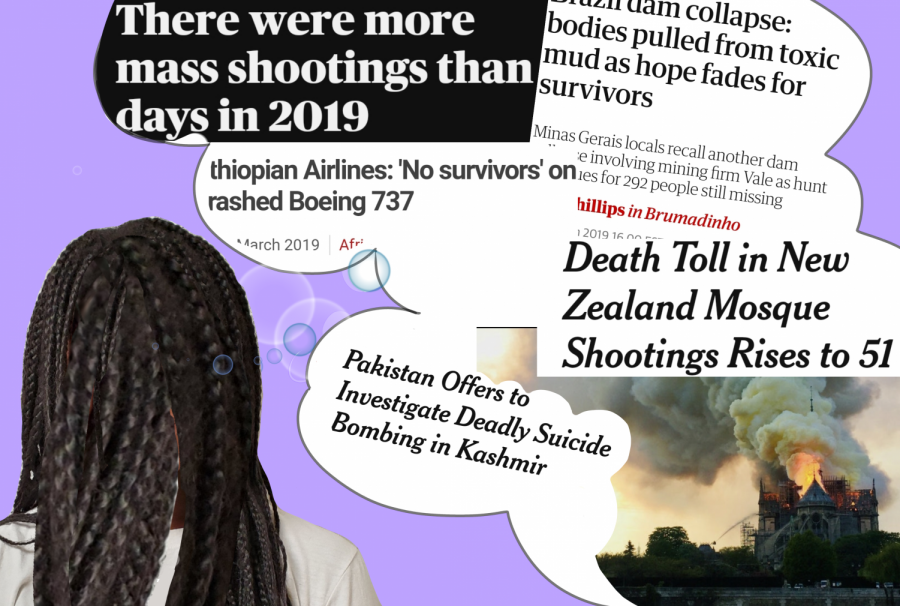How Much is Too Much?
In the 21st century, news can be accessed through our fingerprints for 24 hours of the day. But, sometimes, too much information can overload our brains.
In 2019, we have been exposed to a lot of bad news. We have been trained to show compassion and empathy for every problem happening around the globe. But is constant worry healthy for our bodies?
Throughout 2019, it seemed that there was more bad news every couple of hours. Our brains have been overloaded with the amount of distraught in the world. In 2019 we have experienced a wide variety of disturbing events such as shootings, protests, and cheating scandals.
In April, Notre Dame caught on fire and there was massive social media coverage. However, less than a week later there was an explosion at a mosque in Sri Lanka that killed over 200 people. The media quickly shifted interest. All the while, protests in Hong Kong were still going on. With so many things going on in our world, there seems to be no time to relax, and the world seems to be flooded with negativity.
In 2020, this uninterrupted stream of information will continue to overwhelm us and burden us with the task of showing compassion to everyone. Hasan Minhaj on his show Patriot Act discusses this issue and provides the term “compassion fatigue.” He explains that we have too much in our world to care about, and how difficult it can be to keep up with all of the latest updates. Although intentions may be good, when there are too many issues to worry about, it can become challenging to take care of each individual problem. Minhaj compares this issue to having too many tabs open on a web browser. When a person has too many open “tabs”, it can overload the brain and slowly begin to crash. In order to prevent this from happening, Minhaj recommends that we should “close a few tabs in our brain” and focus on issues that are important to us.
It may be rather difficult to fully close oneself off from many of the issues around the world, but choosing to focus on only a few select topics will be much more productive. Not only this but in order to boost morale, we can also pay more mind to the good things happening across the globe.
The media tends to focus on negative events and leave out many positive achievements. They are generally inclined to make a profit, so they post stories with a large amount of emotional toll. This causes a continuous cycle of returning to the media site to be updated regarding an exaggerated issue. Because of this, most people are not aware of the countless good happenings in the world. For example, last February the U.S. Congress passed a law that protects 1.3 million acres of land from mining companies. In addition, Algeria and Argentina are now malaria-free! In 6 countries malaria infection rates have dropped by 76%. If we begin to focus on the wonderful things that are happening, the world will feel like a much better place.
As reluctant as many people are to close themselves off from much of society, making this transition will improve lifestyles. If each person focuses on one or two issues, the world will become a more efficient and productive place.
So for the start of 2020, we should shift our focus to issues that we find pressing, and help our society improve one issue at a time.

Lily Cunningham is a sixteen-year-old sophomore at NAI. This is her first year of journalism, and she is looking forward to what the new school year will...

Sushmita Rajan is a Sophomore at North Allegheny Intermediate High School. A volunteer for UPMC Passavant she loves to help people. As this is her first...

AshLynn Harrison is a student at North Allegheny Intermediate High School. Her therapist has said, to her face, that she has no life.
AshLynn does have...


